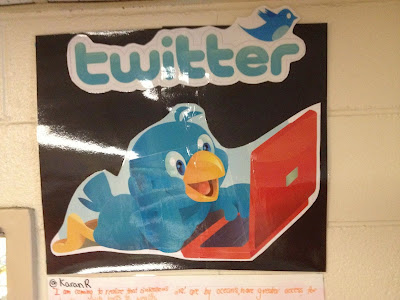1. Show me you know what my child is passionate about
Every student who comes to school is passionate about something. It could be a TV Show, a video game, a sport, music, dance etc. For my six year-old son it is Star Wars. I'm not sure exactly when this happened but he has bought in fully to the power of the force. He is putting together lego Star Wars, is dressing up as Luke Skywalker for Halloween, and has checked out every book possible at our library on Star Wars. When he wakes up in the morning the first thing he does is grab a Star Wars book, look at the pictures, and begin to decipher the words that go along with them. He has spent countless hours trying read these books on his own. My son doesn't see reading these books as work, or an assignment, he sees them as a way to uncover the secrets about what happened ... long, long ago ... in a galaxy far, far way. As educators we need to understand every student has a passion like this. They have something they are so excited about they don't see it as work. It is our job as educators to identify this passion so we can connect with our students, to show them we care about them as people. Identifying this passion will also allow us to relate school work to them in a way they can understand, and see the importance of.
2. Show me you know what his strengths are
Every student has talent. Every student is amazing before they walk through the doors of school and then somehow we lose sight of some these talents the further students go in their academic journey because they aren't reading, writing or math. This takes some work as a teacher to identify strengths in every student. It might require you to go to recess and watch him/her play, watch the way they interact with others, or ask them about their weekend and what they did. For my son I know at home he works hard, is kind to others, and has a love learning. And just like any other parent I hope to hear he has some of these same strengths at school, that they don't stop when he enters the classroom.
3. Show me how you think he can improve
This one can be difficult because every parent, myself included, thinks their children are the most exceptional people in the world. Sometimes teachers fall into the trap of merely explaining what skills a student is weak in, we can do better. At conferences bring student work to show parents what their child's current level of performance is. It also helps to bring other student work (with the names removed) to show what a typical student is doing. It is difficult to understand what a teacher means when they say things like, "your child's writing needs to improve" or "inferencing is a skill he needs to work at." SHOW me through student work how you believe the student needs to improve. This way when I discuss these issues with my son we can speak the same language. I can say, "Remember that assignment you were working on..." and we can begin to have a conversation because I understand the types of assignments that take place in the classroom.
4. Work with me to develop a plan
By the end of the meeting parents should have a plan of action moving forward. As a parent I want to know what I should do more of, continue to do, or do less of when it comes to my son. Should we be spending more time reading? Should we alter the place he does his homework? Do we need adjust his pencil grip and check back in a few weeks? As a parent I need a plan of action to work as a partner with the teacher, something that works for the both of us, not just the teacher or just the parent. Like most families, my wife and I both work but we will find the time to do whatever is necessary to help our son. All I ask is that we develop the plan together, as partners.
These are the four things I would like to see at my Parent - Teacher conference. Please leave a comment below, I would love to hear what you are hoping to see.





